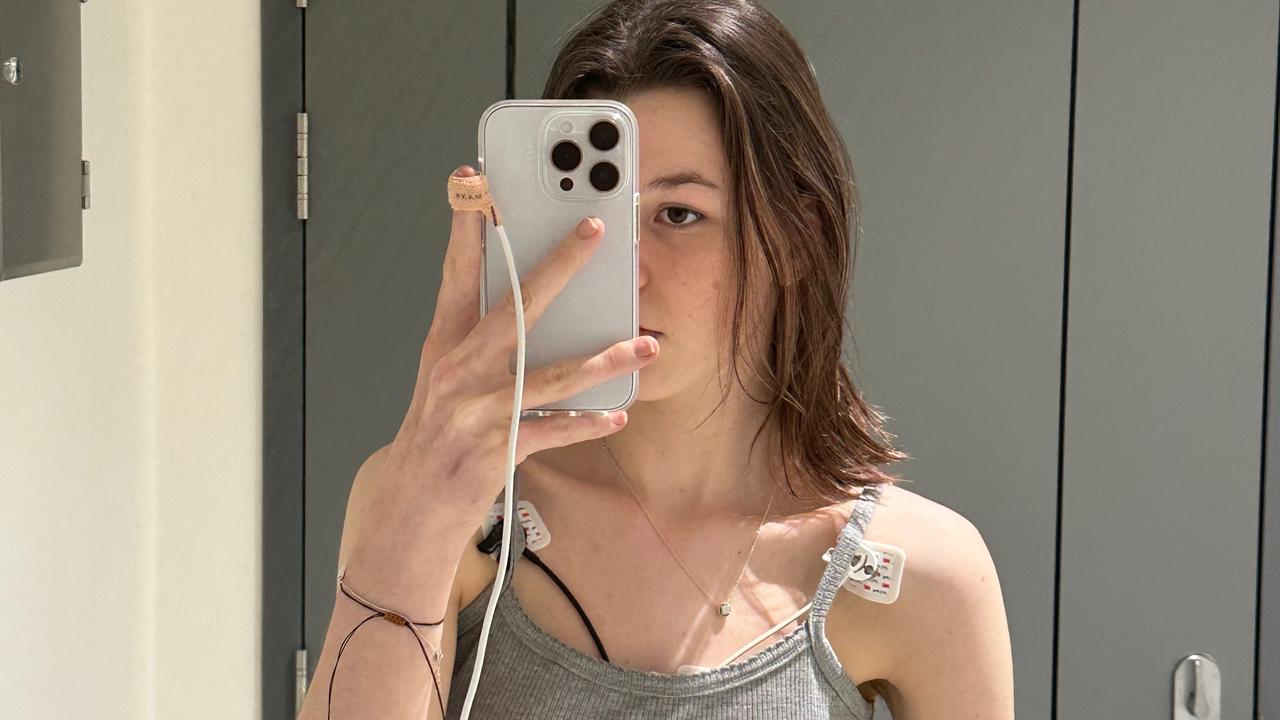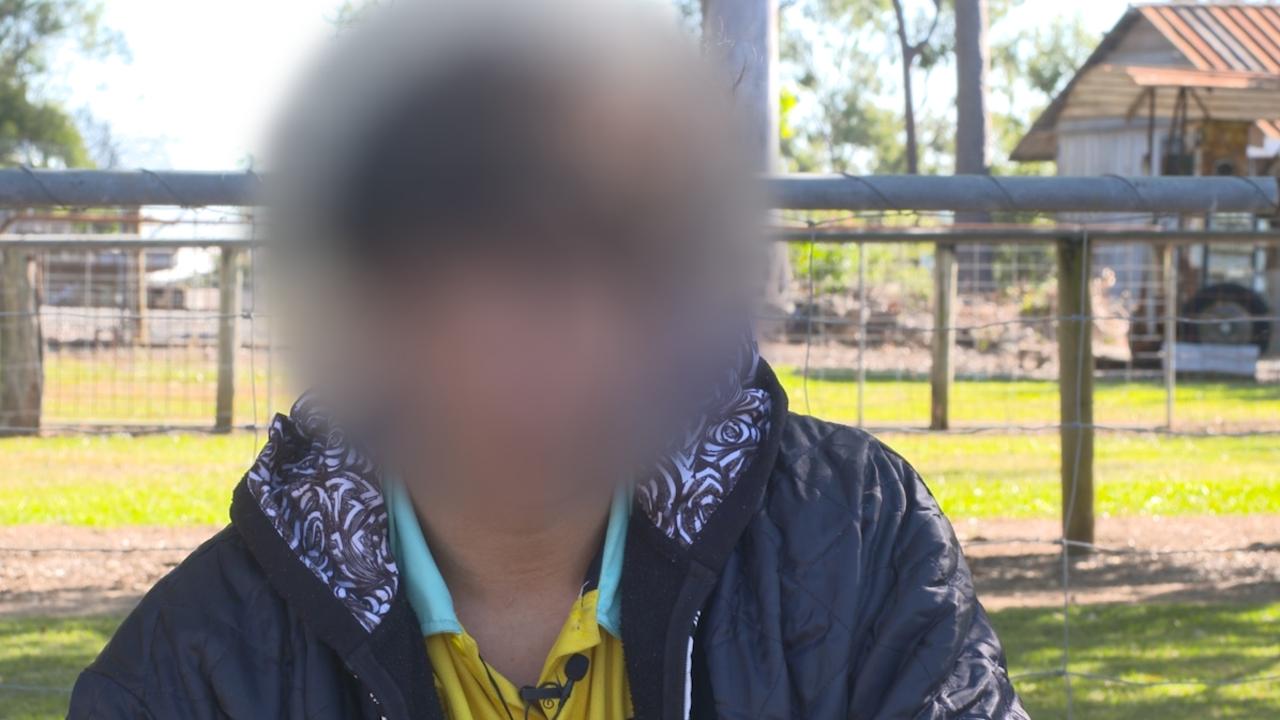Mount Gambier border communities question unfair rules in Covid restrictions
Business owners are baffled by inconsistent Covid restrictions as they grapple with ever-changing rules.
Coronavirus
Don't miss out on the headlines from Coronavirus. Followed categories will be added to My News.
Anger. Frustration. Confusion. These are the sentiments of residents in the South-East as they come to terms with strict new Covid-19 rules.
Businesses have been counting the cost after the state government imposed new stringent restrictions on Mount Gambier, Wattle Range and Grant council areas following a positive test in the region.
Some residents have questioned why they must endure tighter constraints while nothing has changed in Adelaide.
In the past, positive cases confined to Adelaide sparked a statewide lockdown.
South-East tourism and hospitality sectors are licking their wounds as a significant number of school holiday visitors pack up early and leave the popular tourist region.
Many say their emotions are hovering between frustration and anger at uncertainty about the true movements of a Mount Gambier woman who tested positive to Covid-19 after returning from Victoria on October 1.
SA Health has revealed one new exposure site – the Mount Gambier SipnSave (South Eastern Hotel).
Anybody who was there on Friday from 5.30pm-6.05pm should monitor any symptoms and get tested as soon as they develop. This week, the border bubble also contracted to 30km on the Victorian side and 40km on the SA side.
In the heart of Mount Gambier, South Australia’s largest regional city, Jens Hotel manager Aaron Davis said it was unfair for authorities to shut the entire state when there were cases in Adelaide – as seen during the state’s July lockdown – but confine heavier restrictions to regional communities in this instance.

Amid school holidays, he said many people were moving between South-East towns and Adelaide, with the opportunity for the virus to spread.
“Now we’ve got to run at 25 per cent (capacity), we’ll have to pull about $4000-$5000 worth of wages out of the roster,” Mr Davis said.
“Most of my bar staff will lose $200 or $250 this week.”
The new restrictions on the local council districts include home gatherings being limited to two people, private activities capped at 10, and the return of the one-person-per-4sq m rule in hospitality venues.
Joe Case, who owns Cafe Melzar in Mount Gambier, said trade on Tuesday was about a third of what he would expect during school holidays.
He said the town’s main street was quieter than usual, other businesses also appeared “pretty light on” and he would probably need to cancel casual shifts of his workers.
One one of his workers, Laura Wagner, is in the process of saving to buy a house and relies on about 30 hours of casual work a week.
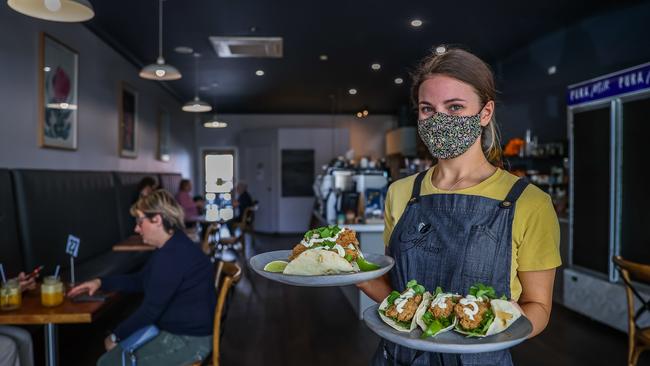
She said the uncertainty posed by the latest Covid-19 case – and the rigid rules – was “scary” and there was uncertainty and confusion about the impact of the new restrictions.
Further south in the seaside hamlet of Port MacDonnell, Grant Fenson runs Customs House Bed and Breakfast and Periwinkles Cafe.
He said this week’s restrictions were yet another blow, with people ringing to cancel accommodation as late as 11pm after the SA Health announcement on Monday. He also questioned why the South-East was hit with restrictions but Adelaide was left alone.
“I understand that we’re going to have restrictions, I have no problem with that,” Mr Grant said. “But I do think that they could have handled this differently.”
Caravan parks are feeling the pinch, too, and have reported people are either packing up and leaving or calling to cancel their holidays.
Mount Gambier’s Blue Lake Holiday Park and Millicent’s Lakeside Caravan Park are among those that have taken cancellations in the past few days.
Derek Sparkes, who operates the Lakeside Caravan Park, said they relied heavily on Victorian visitors.
He said takings had fallen in the past 12 months while Victoria had been in lockdown, and SA clients had also called to cancel since news of the tighter restrictions.
“It’s just got to the stage now where it’s like ‘Here we go again’,” Mr Sparkes said.
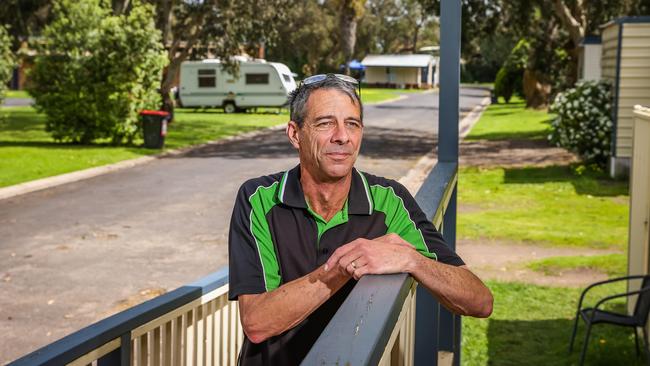
Mount Gambier Mayor Lynette Martin said she could understand some locals feeling there was inequity in how cases were handled across regional and city areas.
However, she said the tightening of restrictions in communities surrounding local cases – not the whole state – was what local districts had lobbied for.
Hospitality businesses were among those most affected by the tougher restrictions placed on
South-East communities, she said – especially amid the travel bubble contracting from 70km either side of the border to 30km on the Victorian side and 40km on the SA side.
Cross-border community members now must Covid-test weekly if they want to enter from Victoria.
Frances farmer Wayne Hawkins, whose property straddles the border, said the new rules were an inconvenience for those working on his property – but for others, it may make it difficult to source labour.
“We need about 50 positives a day in Adelaide just to wake them (policymakers) all up and so everyone on the border can get on with life. We need to get on with life and get everyone jabbed.”
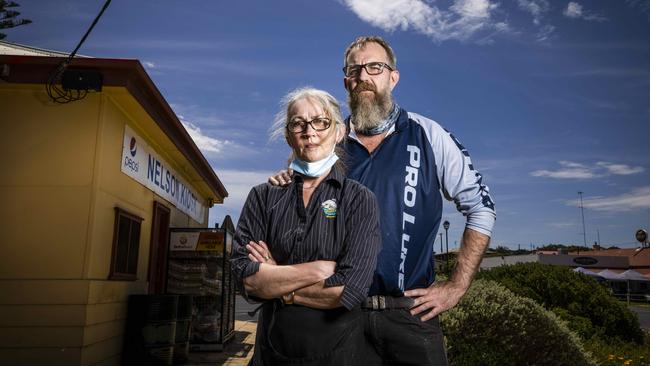
Andrea Winfield and Paul Singleton, who run Nelson Kiosk & LPO (post office) just over the Victorian border live in Donovans.
Much of the shop’s trade relies on people travelling between South Australia and Victoria, and Mr Singleton said the tightening of the border bubble drove down customer numbers.
Tougher restrictions on cross-border community members were making it harder to do business in the area.
“We’ve had to stand staff down because of a lack of work,” Mr Singleton said.
“They have to get tested every week and they go through a border checkpoint every day.
“It’s all extra things that we’re asking them to do that they wouldn’t have to do if they didn’t have to cross the border.”
An SA Police spokeswoman said the response to outbreaks was dependent on each situation.
“At this stage we believe it is a contained risk to the South-East area and therefore restrictions are only in place for the three local government areas,” she said.
Chief public health officer Nicola Spurrier has said she felt for those living in cross-border communities. On Monday she said once authorities had more information about the Mount Gambier woman’s movements, and if there were no more cases, the travel bubble could revert to its previous area.

